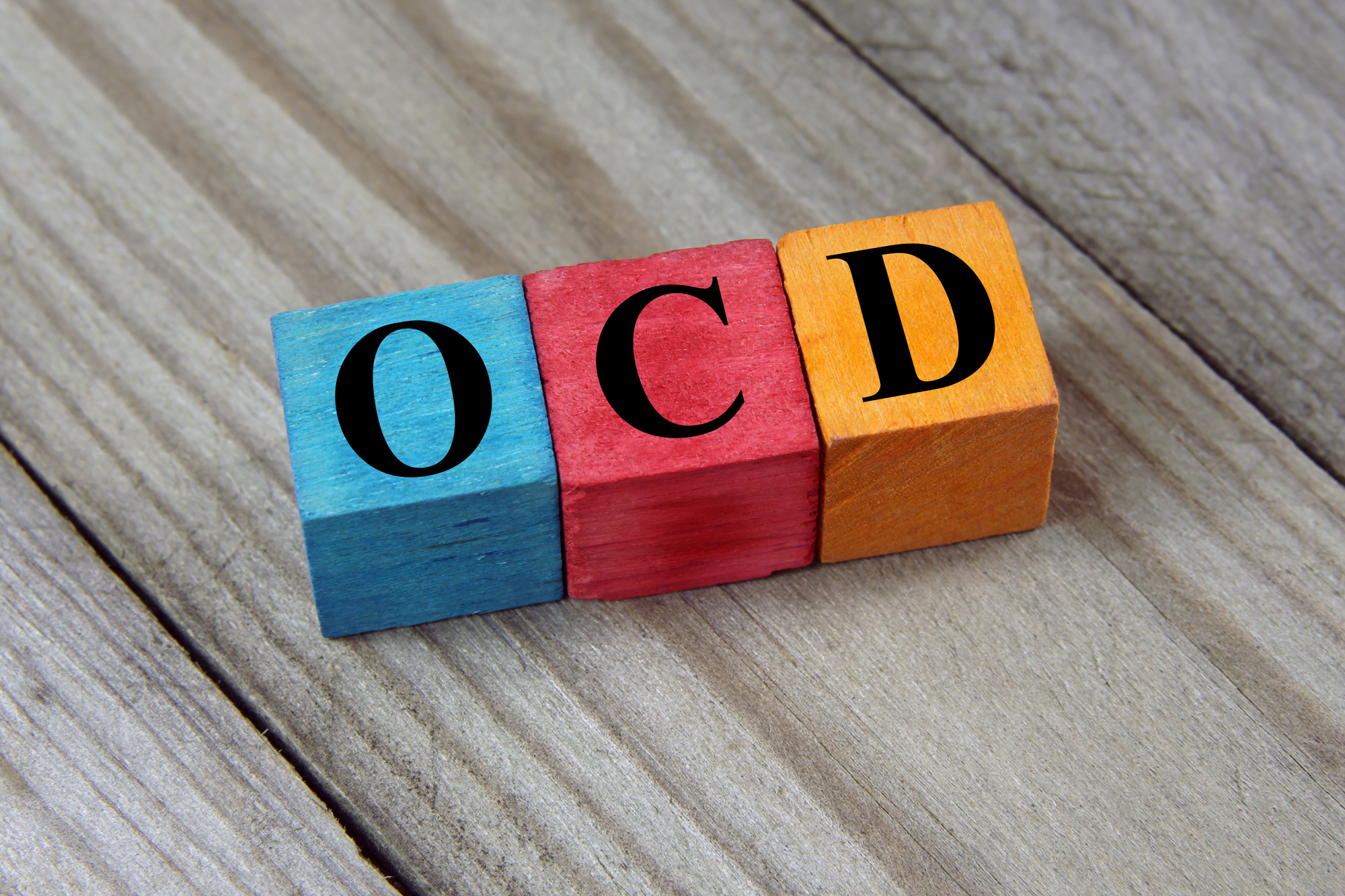What is OCD?
Obsessive-compulsive Disorder (OCD) is characterized by experiencing cycles of unwanted intrusive thoughts (obsessions) and repetitive behaviors (compulsions) that can cause a significant amount of distress for an individual (International OCD Foundation, 2022). This vicious cycle can be debilitating and feel endless for those who struggle with this condition. OCD can latch onto anything you can think of, and obsessions and compulsions can include:
Common Obsessions
- Contamination: germs, dirt, oily or greasy substances, bodily fluids, chemicals
- Harm: causing emotional or bodily harm to self or a loved one.
- Religious: blasphemous thoughts and images, doubt about faith, excessive concern with right/wrong
- Sexual: doubting sexual identity and preference, sex with children, sex with animals, doubt about acting sexually
- Perfectionism: questioning whether something is said or done just right, needing completeness, knowing something perfectly well
- Aggressive: antisocial acts including stabbing, shooting, mutilating children, adults and pets
- Superstitious: lucky and unlucky numbers, words, phrases, and acts
- Neutral: songs, noises, sounds
Common Compulsions
- Decontamination: washing, cleaning, and disinfecting
- Checking: locks, doors, windows, faucets, mental rehearsal
- Magical: wearing special clothing, stepping in special ways, praying
- Perfectionism: arranging and ordering, balancing, rewriting
- Counting: footsteps, objects like ceiling tile and wall fixtures, multiples of numbers
- Protective: checking on safety of loved ones, picking up glass, giving warning to others
- Mental: rehearsing conversations, making mental lists and maps, replacing bad thoughts with good thoughts, reassuring self through reasoning
- Movement: getting in and out of chair, reversing steps and starting over, finger tapping, touching things in special ways
Obsessive-compulsive Disorder can be an overwhelming force in a person’s life, and can impact even the smallest aspects of life. For some people OCD can cause changes in how they interact with their loved ones, limit what activities they feel they can do in their free time, and even the daily actions everyone does to function in our world (eating, personal hygiene routines, transportation).
When most people receive their diagnosis, they have been coping with this disorder for a long time without much improvement. Luckily, mental health providers have been able to find ways to effectively treat this pesky problem. Two effective treatment options for those out there struggling with OCD include Exposure and Response Prevention (ERP) and Medication Management.
Exposure and Response Prevention
This type of cognitive behavioral therapy is meant to help people confront the intrusive thoughts and compulsions that plague their everyday lives by slowly exposing the individual to a fear or obsession while resisting the urge to engage in the compulsive behavior that eases their anxiety.
Most people have heard the term “exposure therapy” tossed around in the media, and this has caused us to view it in a negative way. The truth of the matter is that ERP does not look like people being forced to engage in painful scenarios where they have no choice but to continue with their treatment. So what does this form of treatment actually look like?
- The first step is determining what “triggers” your OCD. Is there a specific thought that makes you anxious? How often does this happen?
- You’ll then work with your therapist to narrow down what intrusive thoughts are the most prevalent and obstructive in your life. Treatment length for OCD typically ranges between 12-14 sessions, but some individuals may make significant progress over fewer appointments (Reichenberg & Seligman, 2016; Samantaray et al., 2019).
- With your counselor you then create exposures, scenarios where you’ll face your obsessions, and work through them. During this process you’ll notice how your anxiety heightens and then gradually lessens over a period of a few moments. Typically you’ll start with exposures that generate less anxiety- think about it on a 1 to 10 scale with 10 being the highest (we start at a 2 or 3 level of anxiety).
- Over time you’ll see that you can engage in more anxiety producing exposures to challenge your obsessions (closer to a 5-7 range of anxiety).
- After some time you will then begin to notice how it actually becomes easier to face these fears head on.
The biggest suggestion we give to anyone who is starting their journey with ERP is that you have to remain consistent with exposures. It can be terrifying to do, but if you keep at it, then you’ll begin to notice significant changes in your life. Just breathe and take it one step at a time.
Medication Management
OCD, like many mental health conditions, can also be treated with medication. Typically a psychiatrist will prescribe an SSRI (an antidepressant) to help lessen the frequency of obsessions and control compulsions. The most commonly used SSRIs used to treat OCD include:
Escitalopram
(Lexapro)
Fluvoxamine
(Luvox, Faverin)
Sertraline
(Zoloft)
Fluoxetine
(Prozac)
Paroxetine
(Paxil, Pexeva)
Clomipramine
(Anafranil)
Your doctor may end up prescribing a different kind of medication based on your individual case. Make sure to talk to your provider about your concerns regarding side effects of your medication or any other questions you may have for them. One piece of information to note here is that the positive outcomes from these medications tend to fade once the medication is discontinued, which is why it is important to seek out counseling services alongside medication management in order to see long-term improvement of your OCD symptoms.
Final Thoughts
Regardless of what path you choose to treat your OCD, the most important thing is the fact that you are seeking treatment. Facing our intrusive thoughts is a jarring experience but it is worth it in the end. If you are interested in learning more about OCD and how it is treated, please reach out to our office to schedule an appointment with Katie Hughes, MEd., EdS, RMHCI to discuss treatment options and start feeling better.
References
International OCD Foundation. (n.d.). How is OCD treated? International OCD Foundation. Retrieved February 18, 2022, from https://iocdf.org/about-ocd/ocd-treatment/
Mayo Clinic. (2020, March 11). Obsessive-compulsive disorder (OCD). Mayo Clinic. Retrieved February 18, 2022, from https://www.mayoclinic.org/diseases-conditions/obsessive-compulsive-disorder/diagnosis-treatment/drc-20354438
Reichenberg, L. W., & Seligman, L. (2016). Selecting effective treatments: A comprehensive systematic guide to treating mental disorders. John Wiley & Sons, Inc.
Samantaray, N. N., Kar, N., & Singh, P. (2019). Four-session cognitive behavioral therapy for the management of obsessive-compulsive disorder using a metaphor for conceptualization: A case report. Indian journal of psychiatry, 61(4), 424–426. https://doi.org/10.4103/psychiatry.IndianJPsychiatry_92_19


